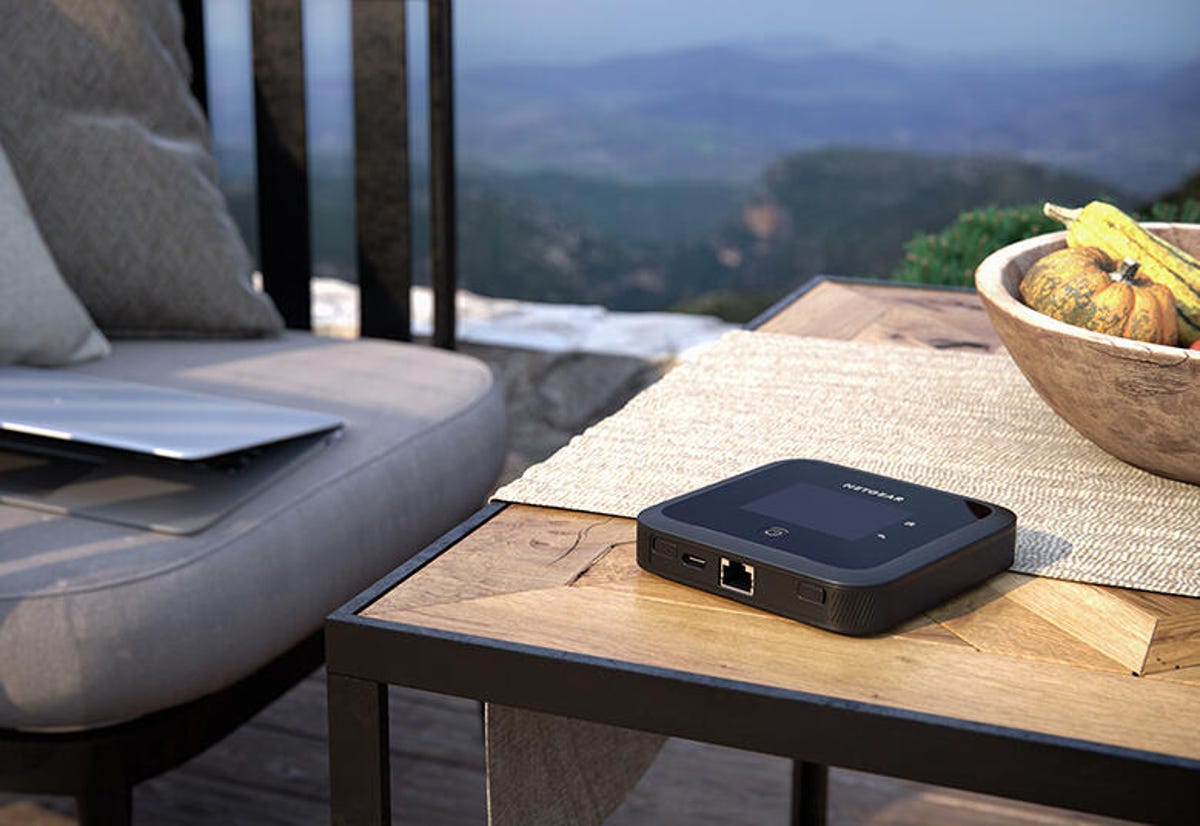It’s no urban myth: From Texas and California to Malaysia and Ireland, innocent tourists and vacationers looking for a romantic getaway have found hidden spy cams in everything from air vents to smoke detectors in their Airbnbs. Internet forums like Reddit are filled with stories about how people found cameras in their Airbnb or rentals, too.

But you shouldn’t have to worry about hidden cams when you go on vacation. Yes, secret voyeur cams sound scary — and they are — but they’re easy to report for a prompt refund or automatic relocation, ensuring that your rest and relaxation can continue without a hitch. And with our tricks below, you can spot them with just a few minutes and a trusty smartphone. Let’s start with the easiest methods.

A guest-friendly router may deserve a closer look.
1. Check out the local Wi-Fi network
Most Airbnbs offer some kind of guest Wi-Fi. Log into it and hop into your settings to view the Wi-Fi network and see if you can find all the connected devices. Use the provided login and on-board router passwords or app to look for a section about connected or attached devices. Or if these options aren’t available, you can try out a third-party app like the Wireless Network Watcher. (Note for the techies, the arp -a command line won’t work here, because it displays only your own computer’s cache of connected device info, and the Airbnb owner probably didn’t leave their laptop behind.)
Now look for any unexpected online devices that don’t match up with any of the technology in the house. You may think that voyeurs would avoid connecting their hidden cams to local Wi-Fi networks, but that’s giving them too much credit. Watch for surprise online devices and see if you can track them down or tell what they are.
2. Bring up your Bluetooth
If cameras aren’t connected to Wi-Fi, you can still pick them up with your Bluetooth. Just set your Bluetooth to its pairing mode and see what devices it can pick up. Disregard TVs and smart home technology and focus on mystery devices that you can’t otherwise identify.

Seeing strange devices on Bluetooth when you’re at an Airbnb? They may be worth a closer look.
If these devices have strange names, look them up to see if they’re a camera product number or similar identifier. Give your Bluetooth a couple of minutes to pick up all available devices and walk from room to room with your phone to see if any surprises pop up.
3. Do a pass with a flashlight
Even the sneakiest cam still needs a lens to watch from, and where there’s a lens there can be a reflection (as well as LED indicator lights). So one of the most effective ways to look for hidden cams is to shut down all the lights in a room, switch on the flashlight mode on your phone and do a careful sweep. Watch for any unexpected glints or flickers of light in strange places that could be a tiny camera lens. It sounds a little weird, but this old-fashioned method of spotting cams is still one of the most effective.
To save a whole lot of time and patience on this step, focus on rooms where spy cams are more likely to be, basically any room where you’d take your clothes off. Look for spots and angles that offer a high, wide field of view — there’s a reason that smoke detectors are such a popular hiding spot. Other popular spots include plants, books and lamps.

Your own eyes and a camera flashlight can do a lot of good work if you’re worried about hidden cameras.
4. Scan for infrared eyes
Many cams use infrared/IR connections for simple controls, especially if they aren’t on a Bluetooth or Wi-Fi connection. That’s the same kind of connection that old-fashioned TV remotes use. Human eyes can’t see infrared light, but the front-facing camera on many smartphones doesn’t have an infrared filter, or at least not a perfect one.
That means you can use your phone cam in a dark room to scan the area, then review the footage to see if you can spot any unexpected dots of whitish light that could mean a device is hiding somewhere.

Apps can help you take a closer look at your Airbnb, but we suggest using them with other methods.
5. Use a camera-spotting app
A slew of apps can help you with the above steps. They’re far from perfect, but they may be able to save you a bit of time if you’re serious about scanning your Airbnb. This one attempts to sense unexpected magnetic fields nearby. This one and this one try to detect reflections automatically when you’re scanning a room. This one combines multiple options.
These apps are typically free or cheap, but we suggest not relying on them entirely when your own naked eye can do so well.
6. Inspect the vents
People have found hidden cameras in all kinds of places, but we suggest getting up close and personal to any wall vents. Vents can often hide the signs of an infrared light or reflection unless you’re at just the right angle. So along with smoke detectors, put these up-high vents on the top of your list if you’re worried.

Thermal cameras are only for the most serious when scanning Airbnbs.
7. Bring out an infrared scanner
If you’re feeling especially anxious about hidden cams and don’t mind investing some dollars, an infrared or heat scanner is one of your best options. These scanners work by detecting heat signatures at close range, and the more affordable, consumer-friendly versions cost around $150 to $200.
These sensors can detect the small heat signatures produced by hidden cameras. You can use them close to walls, mirrors, shelves and anywhere else you want a close scan to watch for unexpected electronics. It’s more time-consuming than our other methods, but nothing else offers such a complete look.
OK, what about security cameras outside the Airbnb?
Currently, Airbnb is banning only cameras indoors on participating properties. So having an outdoor security camera or a video doorbell is still entirely legal and a common choice for Airbnb owners worried about illegal house parties or uninvited strangers. There’s not really anything you can do about the presence of these outside cameras. You can complain that they make you feel uncomfortable, but they probably aren’t going anywhere. However, be wary if any outdoor cams are pointed toward windows so they can see indoors, which is a legal issue just like an indoor spy cam.
Since you’re finished, now is the perfect time to review the spots to never install your own home security cam, the best places to put a security camera, and if it’s legal to record video or audio in your own home.
Yes and no. The owner of the Airbnb can keep cameras that monitor the outside of their property, but it’s not legal for them to spy on you inside the rental. Any outside cameras that are angled to view you inside are a big no-no too, so keep an eye out for those as you sweep the rental for spy cams.
The number one thing you should look out for when sweeping for spy cams in your rental is camera reflections. All camera lenses have some kind of reflection, so you can turn out the lights and scan common camera hiding places like vents with a flashlight to see if you can spot any noticeable glints.























+ There are no comments
Add yours